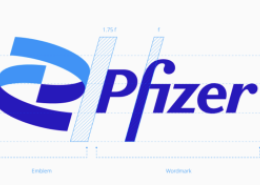FDA Approves Lyrica For The Management Of Neuropathic Pain Associated With Spinal Cord Injury Based On Priority Review
First and Only Treatment Option Approved in the U.S. for Pain Condition Affecting 40 Percent of Spinal Cord Injury Patients
(BUSINESS WIRE)--Pfizer Inc. (NYSE: PFE) announced today that the U.S. Food and Drug Administration (FDA) approved the use of Lyrica® (pregabalin) capsules CV for the management of neuropathic pain associated with spinal cord injury. Lyrica received a priority review designation for this new indication from the FDA. More than 100,000 patients – approximately 40 percent of the 270,000 patients with spinal cord injury in the United States - suffer from this chronic, complex pain condition. Neuropathic pain associated with spinal cord injury can be severely debilitating and may significantly hinder rehabilitation and the ability to regain function.
“This milestone represents an important opportunity for physicians to more effectively manage the debilitating neuropathic pain that often accompanies spinal cord injury,” said clinical study investigator Diana Cardenas, MD, MHA, professor and chair, department of rehabilitation medicine, University of Miami Miller School of Medicine and chief of service for rehabilitation medicine and medical director of Jackson Rehabilitation Hospital, Miami, Florida. “Given the clinical challenges of investigating neuropathic pain in this patient population, any advancements in treatment are welcome by physicians and patients alike.”
An estimated 12,000 new spinal cord injury patients are diagnosed in the U.S. each year. There are a wide variety of causes for spinal cord injury, including traumatic and non-traumatic causes. Traumatic causes may include motor vehicle accidents, violence, falls and sports injuries. In these instances, a spinal cord injury typically begins with a sudden, traumatic blow to the spine that fractures or dislocates vertebrae. The damage begins at the moment of injury when displaced bone fragments, disc material, or ligaments bruise or tear into spinal cord tissue. Non-traumatic causes may involve congenital and developmental abnormalities, genetics and metabolism, infections and inflammation, removal of a benign spinal tumor and spinal cord ischemic stroke.
Neuropathic pain can be experienced above, at or below the level of the spinal cord injury, and is typically not confined to one area in the body. Approximately one-third of spinal cord injury patients report below-level neuropathic pain that is severe or excruciating. Patients may experience neuropathic pain associated with spinal cord injury as early as two weeks after injury and it may persist for up to 25 years.
“Until now, no FDA approved treatment options were available in the U.S. for people with neuropathic pain associated with spinal cord injury, a condition which can be extremely disabling,” said Steven J. Romano, MD, senior vice president and head, medicines development group, Global Primary Care Business Unit, Pfizer. “The approval of Lyrica for this indication is a significant milestone, exemplifying Pfizer’s commitment to pursue scientific advancements that address unmet medical needs.”
About Lyrica Phase 3 Clinical Studies
The FDA approval is based on two randomized, double-blind, flexibly dosed (150–600 mg/day), placebo-controlled Phase 3 trials, which enrolled 357 patients. Among other medications, patients were allowed to continue taking other pain medications, including NSAIDs, opioids and non-opioids. The population of one study consisted of traumatic spinal cord injury patients. The population of the other study consisted of traumatic spinal cord injury patients and patients who had injury to the spinal cord from non-traumatic causes: e.g., removal of a benign spinal tumor or spinal cord ischemic stroke (five percent of patients).
The primary finding in these studies was that Lyrica significantly reduced neuropathic pain associated with spinal cord injury from baseline throughout the duration of the studies (12 weeks and 16 weeks, respectively), compared to placebo. In addition, more patients receiving Lyrica showed a 30 percent and 50 percent reduction in pain than did patients receiving placebo. In some patients, the reduction in pain with Lyrica was significant as early as week one and continued throughout the duration of the trials.
The most common adverse events in these trials in patients receiving Lyrica were somnolence, dizziness, dry mouth, fatigue and peripheral edema.
About Lyrica
Lyrica is currently approved for various indications in 120 countries and regions globally. In the United States, Lyrica is indicated for diabetic nerve pain, post herpetic neuralgia (pain after shingles), fibromyalgia, neuropathic pain associated with spinal cord injury and partial onset seizures in adults with epilepsy who take one or more drugs for seizures. Antiepileptic drugs (AEDs) including Lyrica increase the risk of suicidal thoughts or behavior in patients taking AEDs for any indication.
There have been post-marketing reports of angioedema and hypersensitivity with Lyrica. Treatment with Lyrica may cause dizziness, somnolence, dry mouth, edema and blurred vision. Other most common adverse reactions include weight gain, constipation, euphoric mood, balance disorder, increased appetite and thinking abnormal (primarily difficulty with concentration/attention).
For Lyrica prescribing information, please visit www.lyrica.com.
Pfizer Inc.: Working together for a healthier world®
At Pfizer, we apply science and our global resources to improve health and well-being at every stage of life. We strive to set the standard for quality, safety and value in the discovery, development and manufacturing of medicines for people and animals. Our diversified global health care portfolio includes human and animal biologic and small molecule medicines and vaccines, as well as nutritional products and many of the world’s best-known consumer products. Every day, Pfizer colleagues work across developed and emerging markets to advance wellness, prevention, treatments and cures that challenge the most feared diseases of our time. Consistent with our responsibility as the world’s leading biopharmaceutical company, we also collaborate with health care providers, governments and local communities to support and expand access to reliable, affordable health care around the world. For more than 150 years, Pfizer has worked to make a difference for all who rely on us. To learn more about our commitments, please visit us at www.pfizer.com.
Pfizer Inc.
MacKay Jimeson, 212-733-2324 (media)
Suzanne Harnett, 212-733-8009 (investors)








